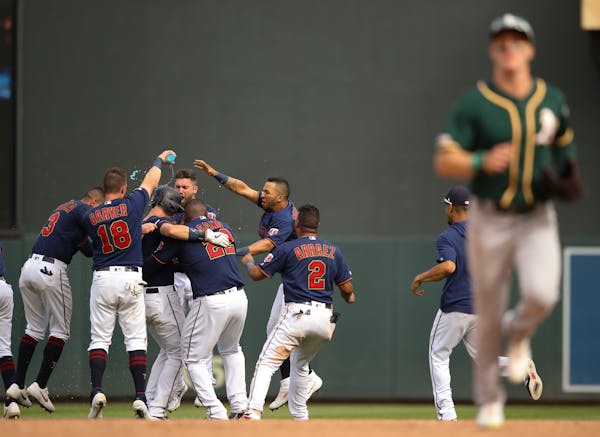Major League Baseball recently put together a 67-page manual outlining safety protocols that will need to be followed if players and other team personnel are going to return to play in a few weeks for training and in early July for a truncated season.
The reported measures range from the mundane to the seemingly extreme to the borderline impossible, and they all underscore the fundamental question: Is this worth it?
That can be viewed through two lenses: Is it worth having a season if all these measures — which we'll get to in a bit — need to be followed?
To that, I would answer with a measured "yes." If MLB and players are determined to have a season, they must do so in the most responsible way possible. If that means exhibiting what seems like an overabundance of caution, so be it. That's what the coronavirus pandemic calls for.
The other lens, though, is more complicated: If MLB needs to draft a 67-page (and likely ultimately longer) set of safety guidelines just to hold a season, is it really safe enough — and ultimately worth it from that perspective — to have a season? That's a fundamental question players are wrestling with, and for good reason. Baseball is not an essential service. It's a luxury. If there wasn't so much money at stake, would there really be such a scramble to re-start sports?
To understand both sides of this question, here are 10 of the most notable measures in the safety proposal, as reported by a variety of sources (the manual itself has not been published in full), along with a comment on each:
*Those not participating in a game would sit 6 feet apart — possibly in the stands or other auxiliary seating areas — and they would be wearing masks. That seems like common sense and easily doable, even if the optics while watching on TV might seem strange.
*No high-fives, fist-bumps, hugging, spitting, chewing tobacco or sunflower seeds. If all those things wind up being part of the final protocol and a season really happens, it seems like some of these would be both hard to enforce and could detract from some of the spontaneous emotion that adds to the environment of a game. I'm trying to imagine a walk-off home run under these conditions, even if they are created with good intentions.
*No mascots or bat boys. Maybe the Twins don't need a new T.C. Bear, after all? Then again, do you really need a mascot if there aren't fans in the stands?
*Temperature screening at least twice a day. Again, this one is common sense. And it will become part of a player's routine. But a lot of little things probably will add up and make everyone involved hyper-aware of the conditions under which they are playing and which we are all living. In ensuring everyone's physical health, how will it impact their mental health?
*Players should wash or sanitize their hands after every half-inning. Pitchers won't need sandpaper to doctor a baseball. Their dry hands will be enough. But again, if you set expectations at a high level then some lapses will still leave everyone relatively safe.
*No use of saunas, steam rooms or therapy pools. That could get tricky for players rehabbing injuries or simply trying to do their daily maintenance routines. In addition to other clubhouse rules, it will probably lead to a pretty sterile — literally and figuratively — atmosphere among teammates.
*When the ball is out of play or in between pitches, fielders are encouraged to retreat several steps away from the baserunner, per The Athletic. If this applies to things like trying to keep runners close at second base, I don't like it. If players are going to be second-guessing the way they play the game, it won't work.
*Every ball put in play gets tossed out, per ESPN's Jeff Passan, who wrote an excellent piece about what could be the new day in the life for an MLB player. Fine. There are more than enough baseballs to go around.
*Postgame showers are discouraged. Gross. Seems like they could figure out a way to stagger them, at least for those who played in the game. But again, it's probably safest if everyone showers when they go back to their homes or hotels. Speaking of which …
*Players would not be allowed to leave hotels while on the road without approval. At home, they would be asked to adhere to social distancing guidelines. Seems extreme. Then again, if there's no season the players will probably just be at home.
The safety proposal really brings home just how different things would feel to players. The two things they would basically still get are pretty big, though: The ability to compete on the field with few if any meaningful between-the-lines changes … and, of course, getting paid at least a portion of their 2020 salaries.
Is it worth it? Players individually and collectively will interpret that question and decide for themselves in much the same way a lot of us will make decisions about what we're comfortable with in our jobs and personal lives in the coming months.






